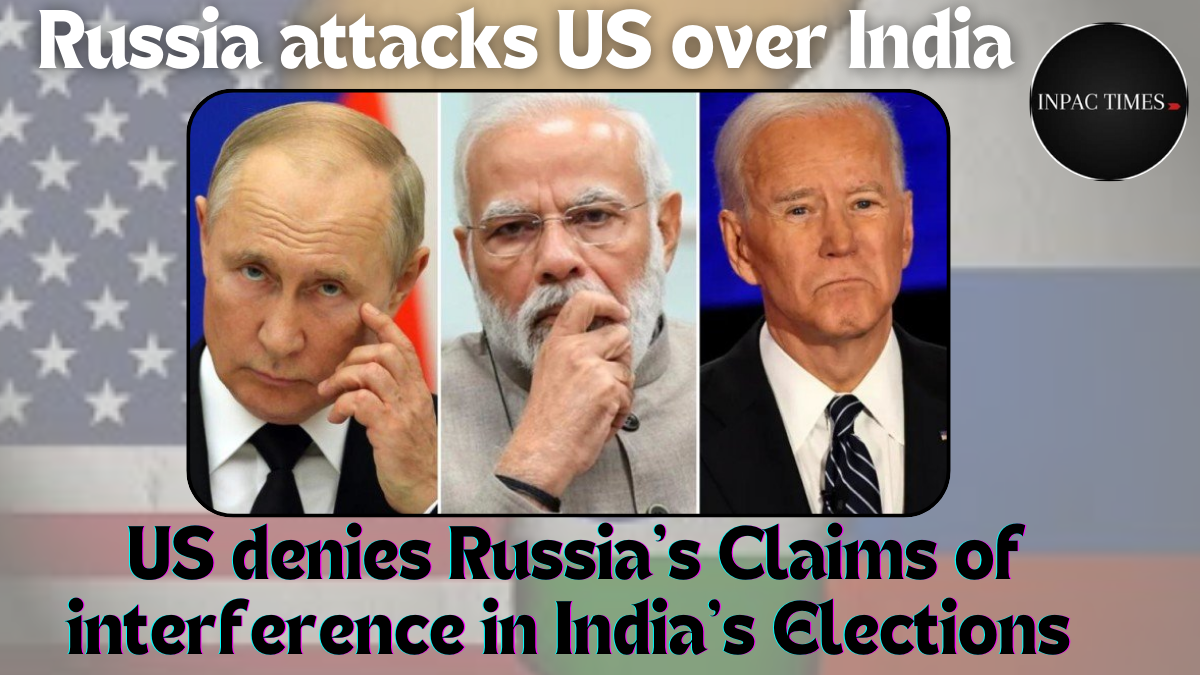In the complex world of international relations, recent developments have placed the United States in the spotlight, accused by Russian officials of meddling in India’s ongoing Lok Sabha elections. These allegations have ignited a series of responses from the US, Russia, and other stakeholders, showcasing the complex interplay of global politics and internal state affairs.
US Strongly Rejects Allegations of Election Meddling
The United States has vehemently denied any involvement in India’s elections, with State Department spokesperson Matthew Miller articulating a clear stance against the accusations. “The United States does not participate in the electoral processes of India or any other country,” Miller asserted, emphasizing that the sovereignty of electoral decisions rests solely with the Indian electorate. This response highlights the US commitment to respecting the democratic processes of other nations and its adherence to non-interference policies.
Russian Claims of US Interference
The controversy intensified after comments from Maria Zakharova of the Russian Foreign Ministry, who accused the US of persistently leveling baseless allegations against India and other nations. Zakharova argued that such claims are part of an overarching strategy by the US to destabilize India during a sensitive electoral phase. She portrayed these actions as symptomatic of a broader pattern of American behavior that undermines the sovereignty of other nations under the guise of promoting democratic values.
Accusations Related to Assassination Attempts
Further complicating matters, Zakharova brought attention to a report by the Washington Post that alleged involvement of Indian intelligence in a thwarted assassination plot against Gurpatwant Singh Pannun, a notable Khalistani activist, on US territory. She characterized these allegations as part of the United States’ efforts to inject chaos into India’s political scene during an election, thus meddling in India’s internal affairs. This claim has added a layer of intrigue and complexity to the already strained US-India relations amid election season.
US Response to Legal Issues
In light of these serious allegations, Matthew Miller was cautious in his comments, citing the ongoing nature of the judicial proceedings surrounding the assassination plot. He reminded the public that the details mentioned in the indictment are merely allegations until proven in a court of law, reinforcing the principle of presumption of innocence until proven guilty. Miller’s restraint underscores the sensitive nature of the legal matters at hand and the importance of judicial independence in resolving such serious accusations.
US-India Diplomatic Dynamics
Amid these tensions, US Ambassador to India, Eric Garcetti, commented on the resilience of the bilateral relationship, expressing contentment with India’s handling of the allegations linked to the assassination plot. Despite the challenges posed by these allegations, Garcetti emphasized that the overall relationship between the two countries remains strong and forward-looking, suggesting a robust framework for future cooperation and mutual understanding.
Russian Criticism of US Reports on Religious Freedom
In an ongoing critique, Zakharova also targeted a US report criticizing India’s record on religious freedom, dismissing it as unfounded and reflective of a misunderstanding of India’s cultural and historical context. She argued that such criticisms are another manifestation of American disregard for Indian sovereignty and a pattern of interference in domestic matters of sovereign nations.
India’s Balanced Approach to Handling Allegations
In response to these multifaceted international challenges, India has adopted a strategic approach that melds diplomatic discretion, enhanced security protocols, transparent communication, and legal measures. By reinforcing its electoral integrity and promoting open, transparent dialogues with international partners, India aims to protect its sovereignty and affirm its commitment to handling international pressures responsibly. This balanced strategy is vital for maintaining India’s international stature and ensuring its continued role as a responsible actor in the complex tapestry of global relations.
Conclusion : International Relations and Geopolitical Tensions
The dispute over alleged election interference highlights the broader strategic rivalries on the global stage. The way nations manage these tensions not only affects their immediate diplomatic relations but also shapes the broader dynamics of international power. India’s role in this scenario emphasizes the importance of sovereignty, the need for diplomatic agility, and adherence to international law, crucial factors that will determine the future landscape of global diplomacy and power distribution among the world’s leading nations.

1 Comment
fif8jt